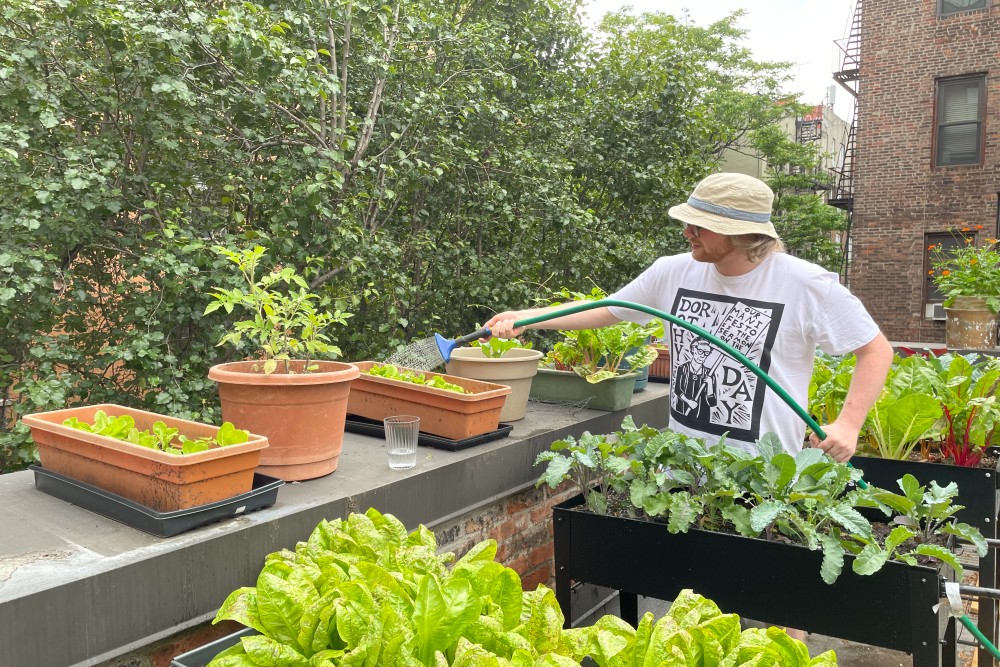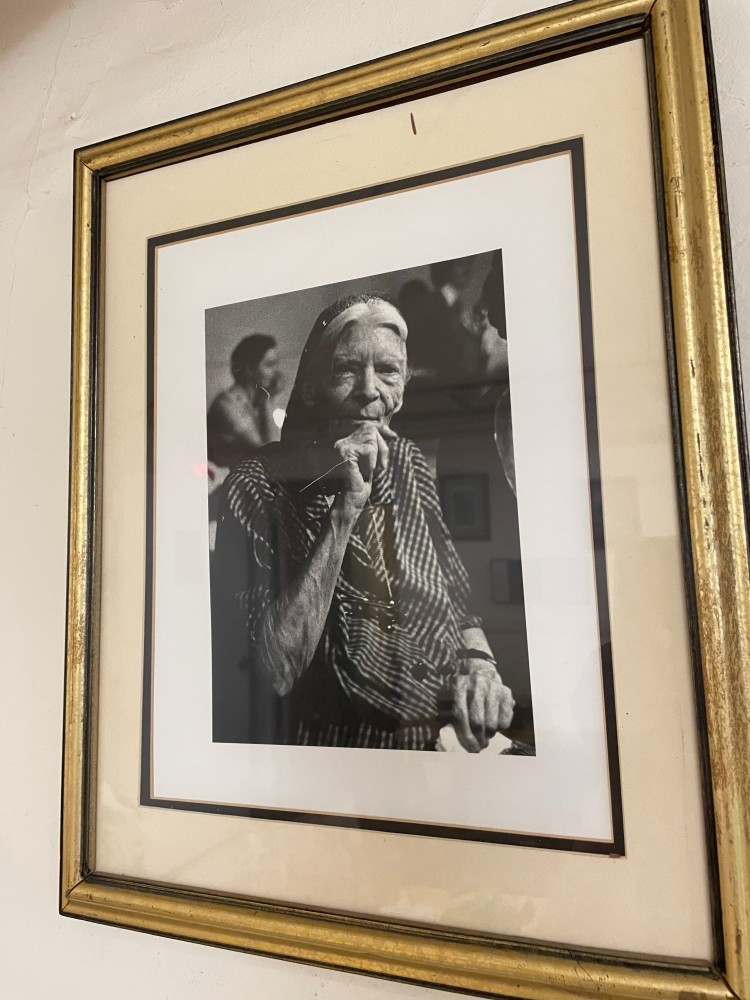
LOWER EAST SIDE — In the house where Servant of God Dorothy Day lived and died, members of the Catholic Worker movement she co-founded in the 1930s are carrying on her legacy by operating a soup kitchen to feed nutritious meals to the downtrodden and hungry.
Now, they’re adding something new to the menu — vegetables grown in their rooftop garden.
The soup kitchen is located in the house where Day lived, called Maryhouse, on the Lower East Side and is open Tuesday through Friday. It serves lunch to approximately 15-30 women a day, said Liam Myers, one of 15 people who live in the house, prepare the meals, and tend the rooftop garden.
Many of the women who come to the soup kitchen at Maryhouse Catholic Worker on the Lower East Side for a free lunch are migrants who were bused up to New York City from Texas and other states on the southern border.
On the day before The Tablet visited Maryhouse, President Joe Biden signed an executive order denying asylum status to most of the migrants crossing the border into the U.S. illegally.
The executive order was a topic of discussion at Maryhouse. “I think Jesus was a migrant and we need to stand with migrants who are moving across borders that are man-made,” said Jim Robinson, a volunteer.
The soup kitchen has been open for several years, but the garden is new.
It grew out of a desire by the residents of Maryhouse to adhere to “Laudato Deum,” Pope Francis’s October, 2023 letter which served as the second part to “Laudato Si’,” the pope’s 2015 encyclical in which he called on Catholics to respect the earth and help the poor.
Moved by the pontiff’s words, the residents and volunteers who don’t live in Maryhouse but are part of the Catholic Worker movement planted lettuce, kale, peppers, tomatoes, squash, and herbs in April and are reaping the harvest to feed themselves and those in need.
They also sat together as a group and read “Laudato Deum” aloud to reinforce their commitment to the pope’s call to serve.
“Beginning earlier this spring, there was a group of us that came together with just more of an interest in cultivating our connection to the earth, to plants, to what we grow, to what we eat,” explained Myers, who is the associate editor of The Catholic Worker newspaper.
On one recent Tuesday, Myers prepared meals that consisted of pea soup, rice, and a salad made from the vegetables he picked from the garden that morning.
The garden has numerous benefits, not only because it is providing freshly grown vegetables and herbs to please the palate, but because it gives the residents and volunteers the chance to live out the corporal works of mercy.

As outlined in Matthew’s Gospel, the corporal works of mercy involve feeding the hungry and giving drink to the thirsty, among other merciful acts.
Robinson, a lecturer in the religion department at Iona University, comes to Maryhouse Catholic Worker once a week to volunteer. “I come here every Wednesday because I really believe in actively practicing the works of mercy,” he explained. “I think that’s the core of my understanding of the Christian faith, to actually embody what Jesus asked his followers to do.”
“And this is a place where it’s easy to do that,” Robinson added.
Dorothy Day (1897-1980) who co-founded the Catholic Worker social justice movement with activist Peter Maurin (1877-1949), devoted her life to helping the poor. She lived in the dwelling now known as Maryhouse in the later years of her life. She passed away in the house and her wake took place in a room now used as a chapel.

In 2000, Day was declared a Servant of God and a cause for her canonization was opened.
“There are some folks that live here that knew Dorothy,” Myers said. “There are some folks just in the surrounding neighborhood that knew her. And on our best days we try to learn together and pass out that knowledge, that historical kind of witness of who she was and how perhaps she would like us to carry on that work.”
